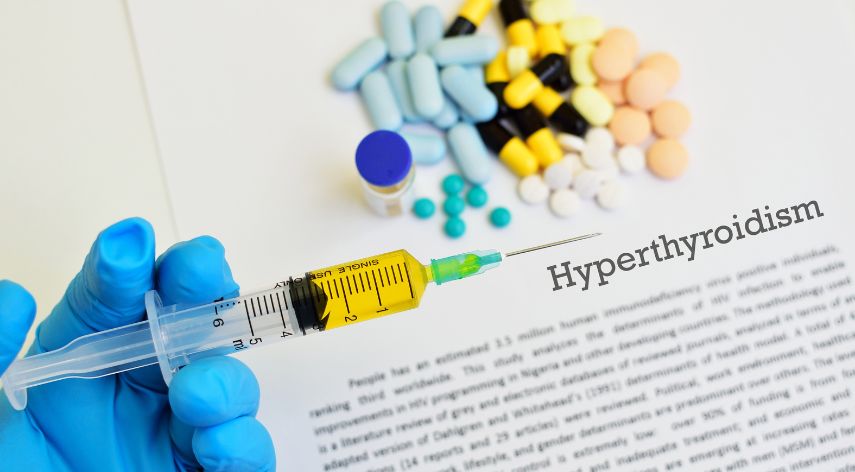The thyroid is a vital gland located in the neck. This butterfly-shaped gland produces hormones that regulate energy use in the body. If you have hyperthyroidism, it means your thyroid glands are overactive, making them produce excess thyroid hormones.
An overactive thyroid gland increases the rate of metabolism, leading to irregular weight loss. In some cases, hyperthyroidism becomes severe when left untreated, but most people who get treatment respond well to it.
Getting the right treatment for hyperthyroidism is important because excess thyroid hormones can put intense pressure on the body, especially the heart.
Hyperthyroidism presents several symptoms, but below are some common symptoms that may indicate the need for immediate medical care.
- Weight changes
The most common hyperthyroidism symptom is a change in body weight. Since hyperthyroidism causes an increase in body metabolic rate, the fat in the body tends to burn faster, and you will burn nutrients from the food yo
u consume faster, leaving your body with less energy to be converted to fat.
Although many people feel that weight loss is good, if you lose weight rapidly without any reason, you should be concerned, so ensure you get a health check-up to diagnose if your weight loss is due to hyperthyroidism.
- Chronic fatigue
Hyperthyroidism causes the food you consume to burn faster, leaving fewer nutrients to be converted to fat to produce energy. Asides from weight loss, many people experiencing hyperthyroidism also feel fatigued because the body cannot balance energy levels.
Since your body is in overdrive and there are many hours in a day, your body can hardly keep up with the high energy levels. The effect of hyperthyroidism is similar to taking excess amounts of coffee, which make you feel weak and tired at the end of your day.
- Mood swings
Persistent fatigue and weight loss can affect your mood, and many people with hyperthyroidism experience mood swings, which may lead to depression in some cases.
Some people experiencing hyperthyroidism usually feel anxious and irritable with difficulty concentration.
- Changing body temperature
Hyperthyroidism makes the body more sensitive to changing body temperatures. If you always feel hot or cold, it may signify hyperthyroidism because the high metabolic rate may affect blood circulation. Hyperthyroidism may also make you sweat more than usual.
- Irregular blood pressure
The thyroid hormones play a vital role in different body processes and organs, especially the heart. If you have hyperthyroidism, your metabolism rate will be higher, leading toan increased heart rate, resulting in irregular blood pressure levels.
This makes seeking immediate medical care for hyperthyroidism important as extra stress due to high blood pressure may be detrimental to the health.
- Dry eyes
In some cases, hyperthyroidism causes an auto-immune disorder called Graves disease, characterised by eye-related conditions such as swollen or dry eyes. If you experience drier eyes than normal, you may be having an allergic reaction, but ensure you visit your doctor to discuss the symptoms and get tested for hyperthyroidism.
- Sore muscles
The increase in the body’s metabolic rate due to hyperthyroidism burns energy faster, leading to muscle soreness and joint pain that cause fatigue. Ensure you monitor your energy levels, and if you have not exerted much pressure on your body or engaged in rigorous physical activity regularly but feel tired often, consult your doctor.
Hyperthyroidism can affect different body parts, and in younger patients, the effect can be rapid and sudden. Misdiagnosis of hyperthyroidism symptoms as the cause of anxiety or stress is common. This makes getting a thorough health check important to rule out symptoms of serious health problems. If you experience any of the symptoms above, ensure you book a Health MOT at https://www.healthscreening.clinic/health-body-mot. You can call us on 020 71837056 to schedule an appointment for your health check.

